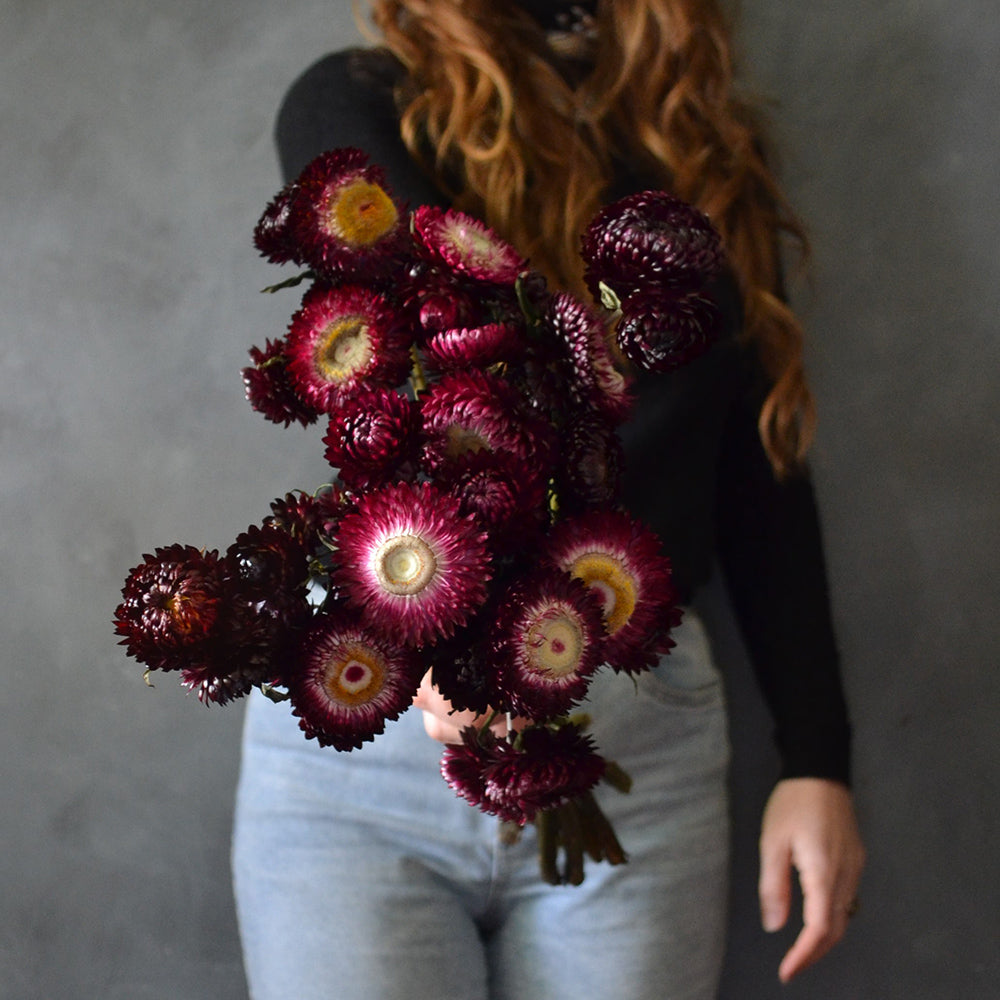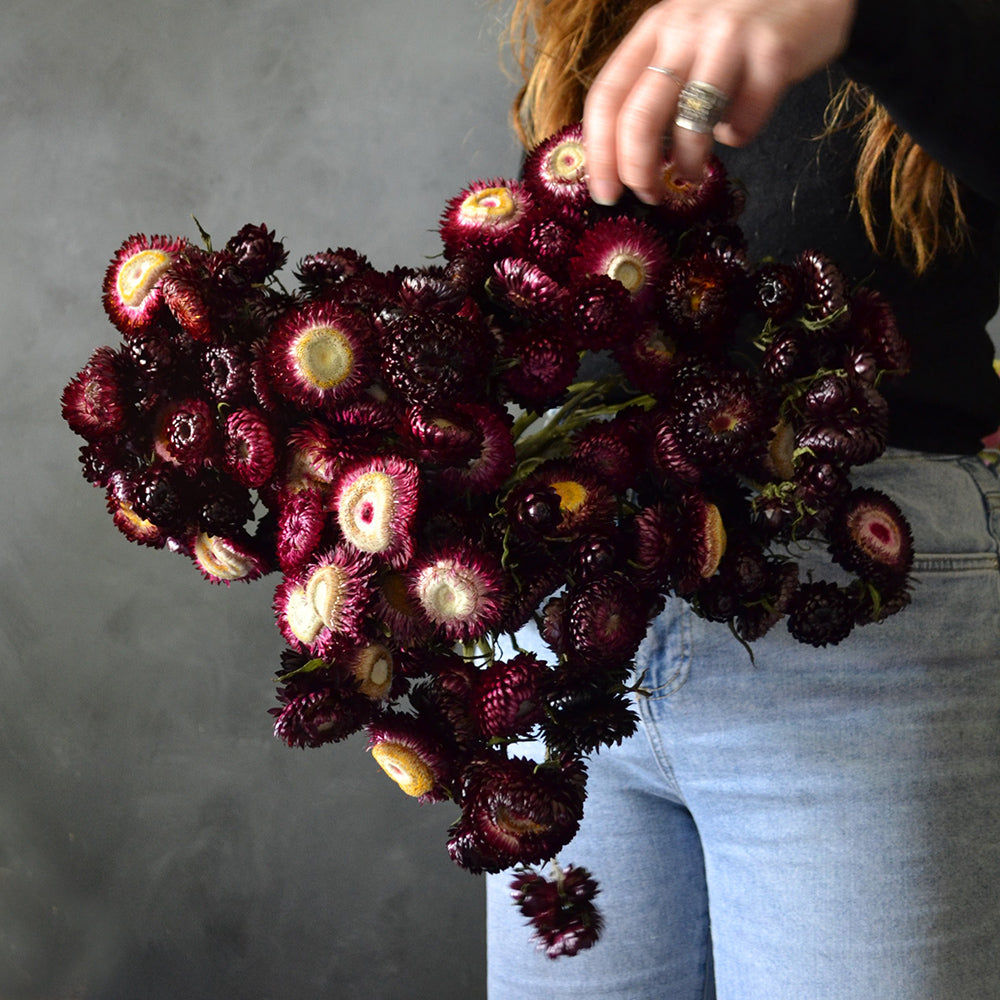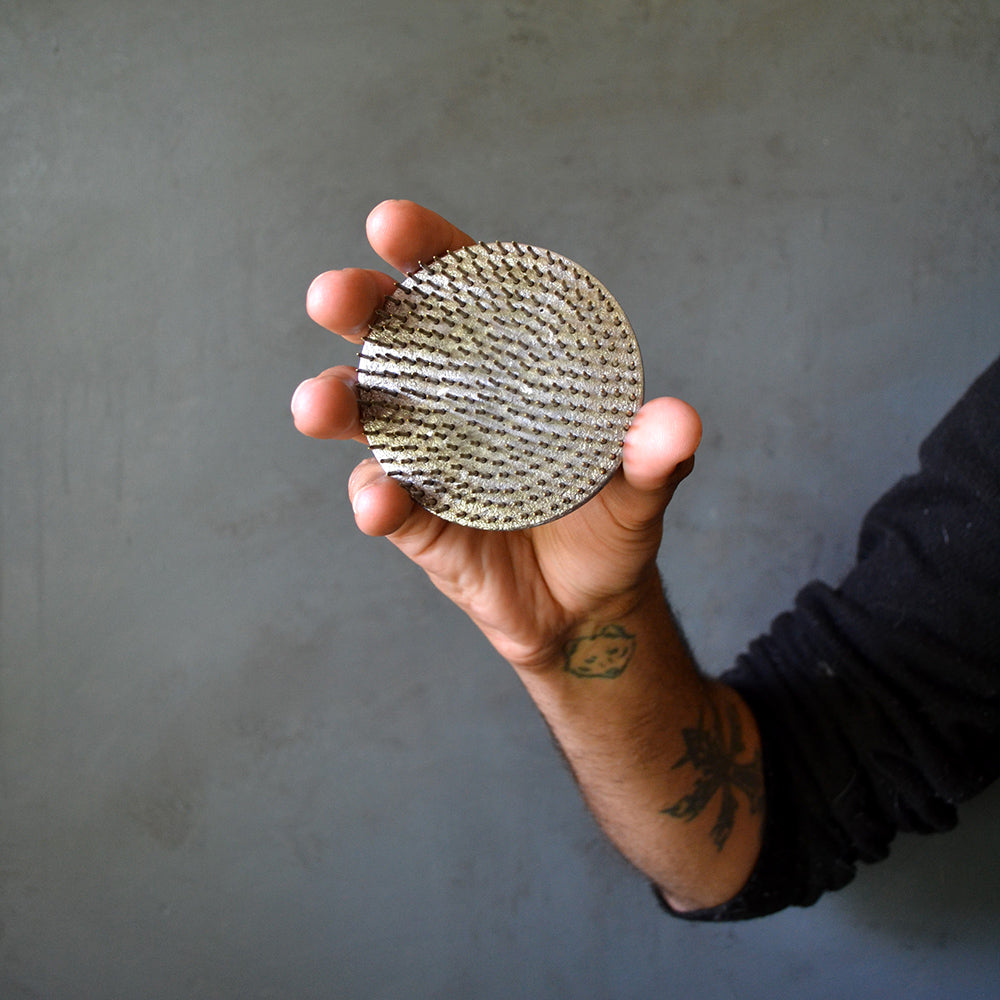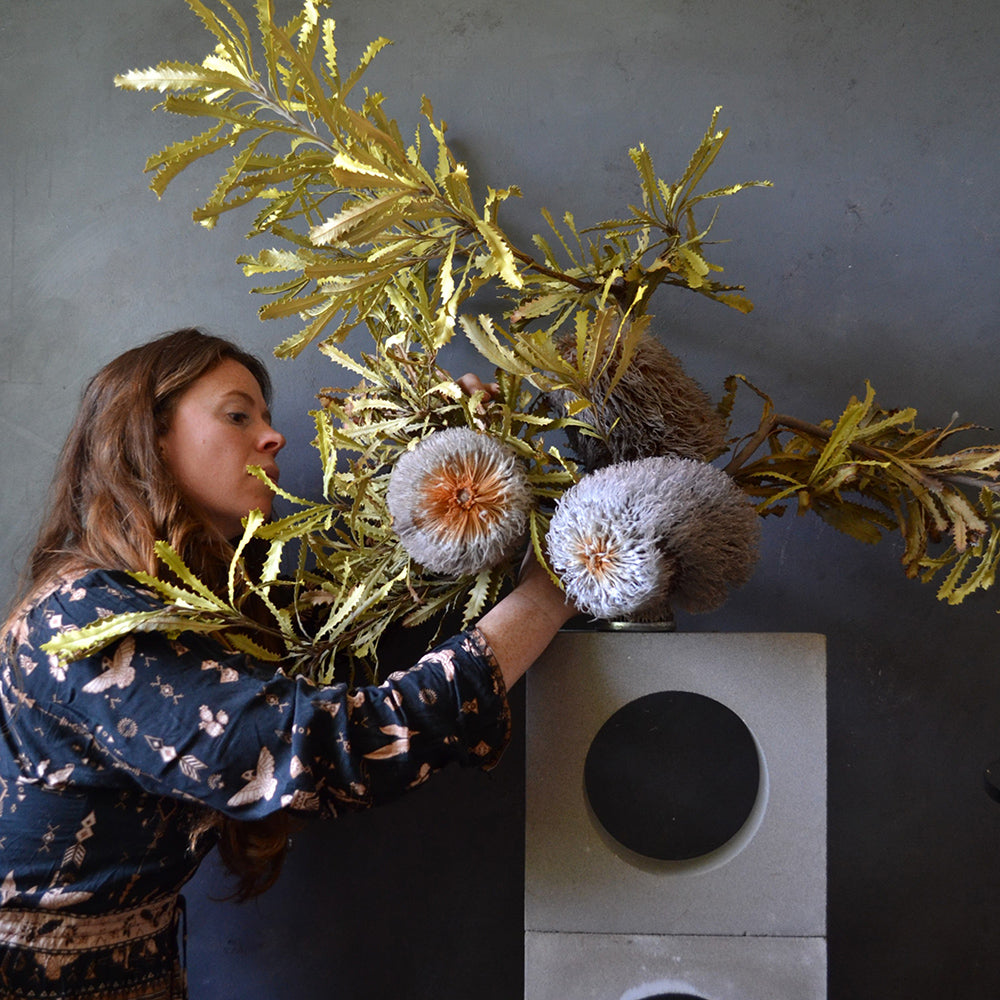" Sustainability for us, in terms of running a business, means taking every possible step to ensure the lightest impact on the environment. We could not comfortably place the Sustainable label on ourselves if only half-measures or selective changes were made."
"Sustainable" is the hottest word in floristry, but is its over-use diluting its significance?
What does sustainability mean and how do you define it? What it actually looks like can be different for the business and for the customer, and with so many businesses keen to start their sustainable journey, how do you know if their current practices align with your expectations as a conscious consumer?
Reading time | 10 minutes

In 2018, a survey by HP Australia and Planet Ark found that over 90% of Australians were concerned about sustainability. One of the key findings was that respondents believed "that businesses and brands should be most responsible for their impact on the environment".
Everywhere, businesses are stepping up to the challenge, finding new ways to operate with less environmental impact, and while some business are doing an amazing job, others are also just starting out with making better choices for their brand.
So as a customer looking to support businesses that suit your values, how do you know where they're at in their journey, and just how sustainable does the hashtag #sustainable mean?

When looking at our industry it's clear that the word Sustainability covers a whole range of meanings and practices, depending on the business. For some, cutting out the use of the microplastic known as floral foam qualifies as being green, for others, offering products that last forever - like preserved florals - makes sense from their viewpoint to meet the expectation of an environmentally friendly business.
This makes it quite confusing if you have your own view of sustainability, especially if it differs from that of the business you are trying to support.
What if you value locally grown flowers as being high on the 'sustainability' list, and choose a florist that supports locally grown, but doesn't mention that they supplement their stock with imports? Or how do you define the foam-free business that sends their local flowers out in cellophane?
Is it possible to find a definition of "sustainability" that makes sense to everyone, and clarifies where your business is at along their journey to going green?

Sustainability to us, in terms of running a business, means taking every possible step to ensure the lightest impact on the environment. We could not comfortably place the 'sustainable' label on ourselves if only half-measures or selective changes were made.
On top of this, we believe in giving back, and using a portion of our profits for good. Because sustainability does not just cover environmental protection. Human rights and ethical business practices need to be included too.
This means paying employees a fair wage, employing workers based only on skill and not any other factors in relation to background, age or orientation, and supporting other ethical, sustainable small businesses as our stockists.
One of the top things you can do as a business, to ensure you are being transparent with yourself and your customers, is to be 100% educated on what you're selling, and know the following:
- Where the product has come from
- How it's been grown or prepared (I can't stress this enough for preserved material)
- How it should be correctly disposed of
- What happens to it in the environment after it's been disposed of, and
- Knowing how the businesses you choose to support operate, and ensuring they are in line with your stance.
In the case of preserved material, even though it can last forever, it would be naive to think that a customer will actually keep it in their home forever. And once they are tired of looking at the same arrangement, or want to update their decor, it will go straight to landfill - leaching all of those chemicals into our soil.
If the product cannot be reused, endlessly recycled, or safely composted at the end of its life, then it is not a sustainable product.
We cannot agree with the view that preserved flowers are sustainable.

As there are currently no laws that require florists to openly disclose where their products have come from, or how to handle and dispose of them correctly once you get them home, it seems incredibly important to find a solution that helps everyone.
Going back to the consumer sentiment from the survey at the beginning of this article: the onus is on businesses to take responsibility, not consumers. That responsibility should include action, open communication and clear brand messages.
In terms of a definition of Sustainability for Floristry, we propose something like the following;
"This business is a Sustainable Florist. We have taken every possible step to reduce our impact on the environment in every aspect of business. This includes; where our products come from (flowers, plants, giftware, accessories & any other items we use and stock), how we present our products to you (including wrapping, stickers, ribbons (or lack thereof), water source), how we handle our businesses' waste, and, by avoiding all products we know to be detrimental to the environment, such as floral foam, plastic, spray paints and non-recyclable materials. Our employees are valued and compensated fairly, we do not discriminate, and we actively support causes that advocate for equality."
It is important to note that aligning with other sustainable businesses should not just include your giftware but also who you choose to bank with. Don't forget the significant difference this part of your business can make.
There are now so many compostable packaging alternatives and an abundance of variety in our local flower farms. Waste can be separated at work benches and disposed of properly, staff food waste collected and composted, cardboard recycled, and there are plenty of other sustainable small businesses to support to stock your shelves with beautiful giftware.
Water phials can be reused over and over for installation work, as well as chicken wire, containers, buckets or kenzans. Resources are plentiful online to help you make any changes you need to create a sustainable floristry practice.
The important thing is to be clear about what you mean by sustainable.
If you are a customer, bride-to-be or corporate business looking for a sustainable florist, we strongly suggest asking questions - lots of questions - and not taking the hashtag "sustainable" at face value. Because sustainable to you and sustainable to a business can mean two very different things!
Our industry is unregulated and the only way to know if a business is being truthful or not is to ask the hard questions. Unfortunately, employee exploitation, greenwashing and half-truths are very common. No industry is perfect, and the floral industry is no exception.
If you are interested in learning more about this, or are a florist wanting to steer our industry in the right direction, please see the below resources to help you get a better understanding of this key issue. And please be truthful to yourself and your customers about your impact!
Slow Flowers: You know slow food but have you heard of slow flowers?
Flowers Magazine: Floral Foam - The Impact on our Environment
Invasive Species Council - The Ugly Side of Flowers
Plastic, Pesticides & Carbon Miles - What Sustainable Shoppers Should Avoid





